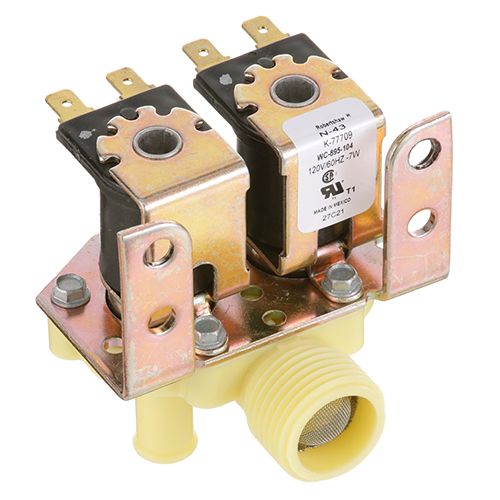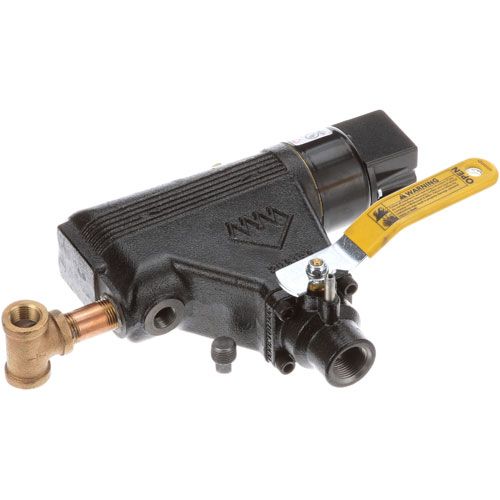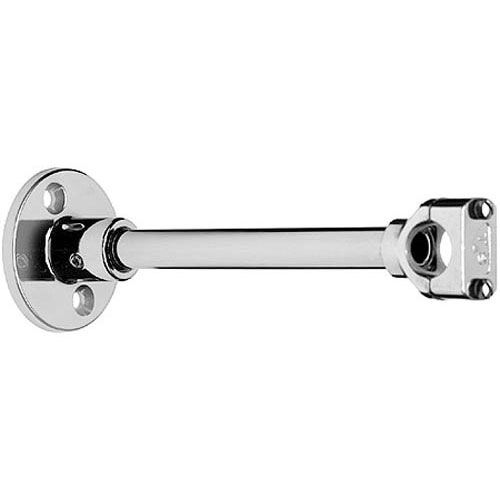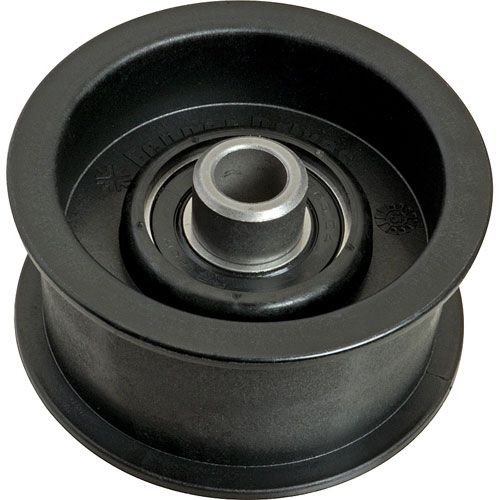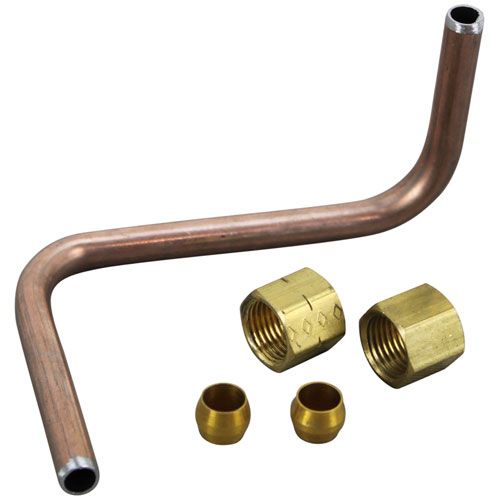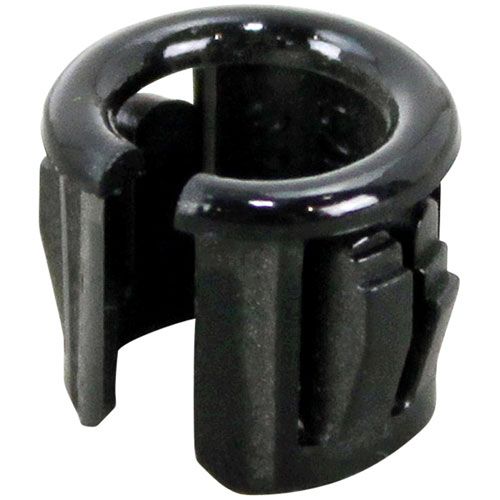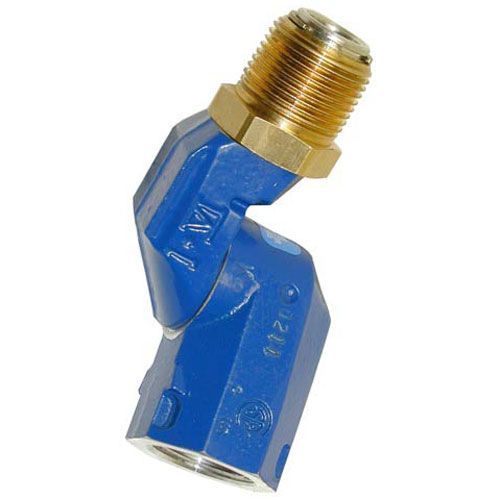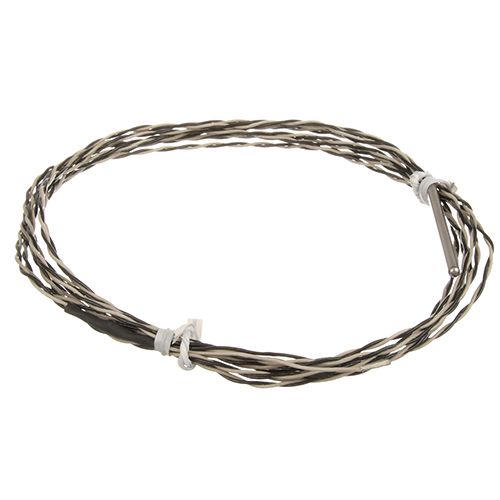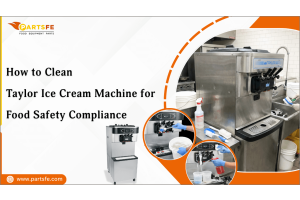Commercial Dishwasher Buying Guide: Cost, Features, and More
Running a restaurant involves a multitude of tasks, one of which is ensuring that dishes are cleaned and sanitized properly. A commercial dishwasher is an essential piece of equipment for any restaurant, as it can help streamline the dishwashing process, improve hygiene, and save time and money in the long run. Discover PartsFe, your one-stop-shop for commercial parts of a dishwasher from top-selling brands at competitive prices. With our extensive inventory and top-notch customer service, we guarantee the quality and reliability you need. Shop now for the best selection and convenience. However, with so many different types of commercial dishwashers on the market, it can be overwhelming to choose the right one for your restaurant's specific needs. That's where this dishwasher buying guide is. It will provide a comprehensive overview of everything you need to know from buying to dishwasher installation costs.
| Table of Contents: What Is a Commercial Dishwasher? How Does a Dishwasher Work in Commercial Restaurants? Types of Commercial Dishwashers What Are the Components of a Commercial Dishwasher? The Best Commercial Dishwasher Brands in 2024 Understanding the Cost of Commercial Dishwashers Commercial Dishwasher Temperature Requirements How to Install a Commercial Dishwasher? How Much Does It Cost to Install a Dishwasher? How to Clean a Commercial Dishwasher? |
What Is a Commercial Dishwasher?
A commercial bar dishwasher is a specialized appliance designed to efficiently clean a large volume of dishes, glassware, and utensils commonly found in restaurants, hotels, and other food service establishments. Unlike residential dishwashers, restaurant dishwasher machines are built to withstand heavy use and have robust cleaning capabilities.
How Does a Dishwasher Work in Commercial Restaurants?
The working principle of commercial dishwashing equipment involves a series of stages. Here is how does dishwasher works in your commercial restaurants:
- First, dishes are loaded into racks or trays and placed inside the dishwasher.
- The machine then sprays hot water mixed with detergent onto the dishes, removing food particles and stains.
- Next, a rinse cycle follows, where clean water rinses off the detergent residue.
- Finally, hot air or heat is used to dry the dishes, ensuring they are ready for use again.
Types of Commercial Dishwashers
There are several types of commercial dishwashing equipment for restaurant, each with its unique features and capacities. Let us take a closer look at the most common types of commercial dishwashers.

Conveyor Dishwasher: Conveyor dishwashers are the largest and most powerful types of dishwasher. They are designed to clean large quantities of dishes quickly, making them ideal for high-volume foodservice operations like cafeterias and large restaurants. Conveyor dishwasher features a conveyor belt that moves dirty dishes through a series of wash and rinse zones. These commercial kitchen dishwasher can wash up to 350 to 1000 dishes and flatware racks daily, making them ideal for busy kitchens. They are typically made of stainless steel and can have multiple levels of wash and rinse zones.
Door Type / Rack Dishwasher: Door type or rack dishwashers are the most common type of commercial dishwasher. They are designed to be loaded with racks of dishes, glasses, and utensils, which are then washed and sanitized in a single cycle. Door type dishwashers are available in a range of sizes, from compact models that can fit under a countertop to larger models that can handle up to 30 to 350 dish and flatware racks every day. They are typically made of stainless steel and feature multiple wash arms to ensure thorough cleaning.
Undercounter Commercial Dishwasher: Commercial undercounter dishwasher are smaller, more compact machines designed for smaller foodservice operations like cafes, bars, and small restaurants. These small commercial dishwashers are typically installed under a counter or work surface and can wash up between 20 to 55 dish and flatware racks per hour. commercial undercounter dishwasher are typically made of stainless steel and feature multiple wash arms and rinse cycles for thorough cleaning and sanitization.
Glass Washer: Glass washers are specialized commercial kitchen dishwasher designed specifically for cleaning glasses. They are typically smaller than other types of commercial dishwashers and feature gentle wash cycles to protect delicate glassware.These small commercial dishwashers can wash up to 2,000 glasses per hour, making them ideal for busy bars and restaurants. They are typically made of stainless steel and feature specialized wash arms and racks to accommodate different types of glasses.
Pot Washer: Pot washers are specialized commercial dishwashers designed for cleaning large pots, pans, and other cooking equipment. They are typically larger than other types of commercial dishwashers. Pot dishwasher features high-pressure wash cycles to remove stubborn food debris. Pot washers can wash up to 30 pots per hour and are typically made of stainless steel.
Ventless Dishwasher: Ventless dishwashers are a newer types of dishwasher designed for small foodservice operations with limited space. They are typically smaller than other types of commercial dishwashers and do not require a vent hood or exhaust system.These small commercial dishwashers are typically undercounter models and can wash up to 30 racks of dishes per hour. They are typically made of stainless steel and feature multiple wash arms and rinse cycles for thorough cleaning and sanitization.
What Are the Components of a Commercial Dishwasher?
We know that commercial dishwashing equipments are designed to efficiently clean large volumes of dishes, glasses, and utensils. These powerful machines consist of several components working together to deliver effective and consistent washing results. Here are the common parts of a dishwasher:
Pumps: Commercial bar dishwashers are equipped with powerful pumps responsible for circulating water throughout the machine. The pumps ensure that the cleaning solution reaches all the necessary areas, removing food particles and stains from the dishes.
Water Valve: The water valve is a vital component that controls the flow of water into the dishwasher. It allows the machine to fill up with the appropriate amount of water required for the washing cycle.
Hose: A dishwasher incorporates hoses to facilitate the movement of water to different parts of the machine. These hoses are responsible for delivering water from the water supply to the dishwasher and directing it to the appropriate areas during the cleaning process.
Dispenser: Dishwashers often have a dispenser for detergent and other cleaning agents. This component accurately measures and releases the necessary amount of detergent or sanitizer into the dishwasher during the wash cycle, ensuring optimal cleaning results.
Impeller: The impeller is a rotating component that works in conjunction with the pump. Its purpose is to create pressure within the dishwasher, aiding the circulation of water and detergent, thereby enhancing the cleaning performance.
Brackets: Brackets are sturdy metal or plastic structures that secure and hold various components in place within the dishwasher. These components may include the pump, motor, valves, and other essential parts, ensuring stability and preventing damage during operation.
Timer: A timer is an integral part of the dishwasher's control system. It allows operators to set and control the duration of each wash cycle. Timers help maintain consistent washing times and ensure efficient operation.
Wash Arm: The wash arm is responsible for spraying hot water and detergent onto the dishes, providing thorough cleaning. It typically consists of multiple spray nozzles strategically placed to cover the entire commercial dishwasher rack, ensuring even distribution of water and detergent.
Heating Element: A heating element is incorporated into commercial dishwashers to elevate the temperature of the water used during the cleaning process. Higher water temperatures aid in removing grease and grime from dishes effectively, while also providing sanitation benefits.
Rinse Aid Dispenser: Rinse aid is a chemical agent used to enhance the drying process and prevent water spots on dishes. The rinse aid dispenser accurately releases a small amount of rinse aid during the final rinse cycle, ensuring sparkling, spot-free results.
Door Latch: The door latch is a mechanism that securely holds the dishwasher door closed during operation. It prevents any leakage of water or steam and ensures that the cleaning process is contained within the machine.
The Best Commercial Dishwasher Brands in 2024
In 2024, several manufacturers stand out as the best in the commercial bar dishwasher industry. Hobart is known for its high-quality and efficient dishwashers, offering a range of models suitable for various establishments. Jackson is another top contender, providing reliable and durable dishwashing equipment with advanced dishwasher features.
Stero is recognized for its innovative designs and cutting-edge technology, ensuring optimal performance and productivity. Champion is a reputable manufacturer offering a diverse selection of commercial dishwashers that excel in durability and energy efficiency.
Lastly, Duke has established itself as a reliable brand, offering reliable and high-performance dishwashers that meet the demands of busy commercial kitchens. These are the best commercial dishwasher brands that continue to prioritize quality, functionality, and customer satisfaction, making them the best in the industry.
How to Choose the Right Commercial Dishwasher for Your Restaurant?
Choosing the right restaurant dishwashers for your restaurant is a crucial decision that can greatly impact the efficiency and productivity of your kitchen operations. With a wide range of options available in the market, it's important to consider various factors to ensure you select a dishwasher that meets your specific needs. Here are the essential considerations to help you make an informed decision and find the perfect dishwasher for your restaurant.
Assess Your Restaurant's Needs:
Before beginning your search, evaluate your restaurant's specific requirements. Consider factors such as the size of your establishment, the number of customers you serve, and the types of dishes you regularly handle. This assessment will help determine the capacity and features you should look for in a dishwasher.
Types of Commercial Dishwashers:
There are different types of restaurant dishwasher machines available, each with its own advantages and limitations. The main types include undercounter dishwashers, door-type dishwashers, conveyor dishwashers, and flight-type dishwashers. Understand the dishwasher features, space requirements, and capacity of each type to determine which one best suits your needs.
Capacity and Speed:
Consider the volume of dishes your restaurant handles during peak hours. The dishwasher you choose should have the capacity to handle your peak load efficiently. Additionally, assess the speed at which the dishwasher can complete a cycle. Faster cycle times can help improve overall productivity and reduce wait times for clean dishes.
Water and Energy Efficiency:
Opting for a dishwasher with high water and energy efficiency can significantly reduce utility costs in the long run. Look for models with Energy Star certification, as they are designed to conserve water and energy without compromising performance. Dishwashers with features like variable wash cycles, low-water usage, and heat recovery systems can also contribute to cost savings.
Cleaning Performance and Wash Cycle Options:
Check the cleaning performance of the dishwasher by reviewing customer reviews and ratings. Look for models that offer multiple wash cycle options, including delicate, standard, and heavy-duty cycles. This versatility ensures that your dishwasher can handle various types of dishes and remove stubborn stains effectively.
Ease of Use and Maintenance:
Consider the ease of use and maintenance requirements of the dishwasher. Look for dishwasher features such as user-friendly controls, intuitive interfaces, and self-cleaning functionality. Additionally, assess the availability of local service and support for the dishwasher brand you choose to ensure prompt assistance in case of any issues.
Dishwasher reliability & durability:
Investing in a dishwasher with a solid build quality and proven reliability is essential for long-term use. Research the reputation of different brands and models to determine dishawasher reliability and performance in commercial settings. Reading customer reviews and seeking recommendations from industry professionals can provide valuable insights.
Understanding the Cost of Commercial Dishwashers
When investing in a commercial dishwasher, understanding the full scope of costs involved is crucial for making an informed decision. The average cost of dishwasher varies widely depending on factors like size, type, brand, and features, but it’s also important to consider ongoing operational costs beyond the initial purchase.
Price Ranges for Different Types of Dishwashers
Commercial dishwashers typically range from $2,000 to $15,000 or more. Smaller undercounter models, often used in cafes or small kitchens, are on the lower end of the spectrum, priced between $2,000 and $5,000. Mid-range options, like door-type or stationary rack dishwashers, commonly used in mid-sized restaurants, fall between $4,000 and $8,000. Larger, high-capacity models such as conveyor or flight-type dishwashers, suited for large-scale operations like hotels or hospitals, can cost upwards of $10,000 to $15,000.
Factors Influencing Cost
Several factors drive the cost of a commercial dishwasher. Size and capacity are major contributors—larger dishwashers capable of cleaning more dishes per cycle generally come with a higher price tag. Advanced features like energy efficiency, faster cycle times, built-in water softeners, and enhanced sanitization technologies also add to the cost. Premium brands with a reputation for durability and service may charge more, but they often provide longer-lasting products and better warranties.
Operational Costs
Beyond the upfront purchase price, it’s important to account for ongoing operational costs. Commercial dishwashers consume electricity and water, with costs varying depending on the efficiency of the model. Energy-efficient dishwashers, although more expensive initially, can significantly reduce water and energy usage, lowering utility bills in the long run. Detergent, rinse aid, and water softeners are also regular expenses to consider.
Commercial Dishwasher Temperature Requirements
Commercial dishwasher temperature requirements vary depending on the type of establishment and local health codes. Generally, the final rinse temperature should be between 180°F (82°C) and 195°F (90°C) to effectively sanitize dishes. The wash cycle temperature should be around 150°F (65°C) to remove grease and food particles. It's important to follow manufacturer instructions and local regulations to ensure proper cleaning and sanitation. Regular monitoring and maintenance of the dishwasher's temperature control system are crucial to meet hygiene standards and ensure food safety.
How to Install a Commercial Dishwasher?
Follow these general steps for commercial dishwasher installation:
Choose a suitable location: Select a space in your commercial kitchen that meets the necessary requirements for the dishwasher, including proper plumbing and electrical connections.
Prepare the space: Clear out the area and ensure there is enough room for the dishwasher. Make sure the floor is level and capable of supporting the weight of the appliance.
Check the plumbing: Ensure that there are water supply and drain lines available near the dishwasher installation location. If not, you may need to hire a plumber to extend the lines.
Install necessary plumbing connections: Connect the dishwasher's water supply line to the hot water source using the appropriate fittings. Connect the dishwasher's drain line to the building's drain system.
Electrical connection: Ensure that there is a dedicated electrical circuit available for the dishwasher. If not, you may need to hire an electrician to install one. Follow the manufacturer's instructions for properly connecting the dishwasher to the electrical supply.
Level the dishwasher: Use a spirit level to make sure the dishwasher is level both from front to back and side to side. Adjust the dishwasher's feet as necessary to achieve a level position.
Secure the dishwasher: Once the dishwasher is level, secure it in place using the provided mounting brackets or screws. This will prevent it from moving during operation.
Test the dishwasher: Turn on the water supply and electrical power to the dishwasher. Run a test cycle to ensure that everything is functioning properly.
Final checks: Inspect the dishwasher for any leaks, and make sure all connections are secure. Verify that the dishwasher is properly draining and that the wash and rinse cycles are working correctly.
How Much Does It Cost to Install a Dishwasher?
Dishwasher installation costs can vary depending on several factors, such as the complexity of the installation, any necessary plumbing or electrical work, and the location. Here's a rough estimation of cost of installing a dishwasher:
| Installation Task | Average cost of dishwasher installation |
| Basic installation (no additional work) | $100 - $200 |
| Plumbing modifications | $200 - $500 |
| Electrical circuit installation | $200 - $500 |
| Hiring a plumber or electrician | $50 - $100/hour |
How to Clean a Commercial Dishwasher?
Follow these steps for cleaning the dishwasher:
- Remove any large food particles or debris from the dishwasher's interior.
- Prepare a dishwasher cleaning solution using warm water and a commercial dishwasher cleaner.
- Wipe down the interior surfaces, including commercial dishwasher racks, walls, and door, using a soft cloth or sponge soaked in the cleaning solution.
- Pay extra attention to areas prone to buildup, such as spray arms and filters. Remove and clean them separately if possible.
- Rinse all surfaces thoroughly with clean water.
- Run an empty cycle with the dishwasher cleaner to remove any remaining residue.
- Finally, wipe the exterior surfaces and control panel with a damp cloth.
Hope this dishwasher buying guide has provided valuable insights and considerations for restaurant owners looking to invest in a commercial dishwasher. Also, it emphasizes the importance of understanding the specific needs of the establishment by highlighting the key factors to consider when purchasing a dishwasher.
FAQs
How much does a dishwasher cost for commercial use?
The cost of a commercial dishwasher for a restaurant can vary widely depending on the brand, size, and features, but it typically ranges from $3,000 to $20,000 or more.
What is the average size of a dishwasher commonly used in commercial restaurants?
The average size of a dishwasher typically used in commercial restaurants is approximately 24 inches (width) by 24 inches (depth) by 35 inches (height). However, sizes may vary depending on the specific model and brand.
What is the average lifespan of a dishwasher?
The average lifespan of a dishwasher is typically around 10 to 15 years with proper maintenance and care.
Can I use regular dish soap in a commercial dishwasher?
No, regular dish soap should not be used in a commercial dishwasher. Commercial dishwashers require specific detergents designed for their high-temperature and high-pressure cleaning processes.
How do I troubleshoot common issues with a commercial dishwasher?
Troubleshooting common issues with a commercial dishwasher involves checking for clogs, ensuring proper water and detergent supply, examining heating elements and filters, and consulting the manufacturer's manual or contacting a professional technician if needed.
How long does it take to run a cycle in a commercial dishwasher?
The duration of a cycle in a commercial dishwasher can vary depending on the model and settings, but it typically ranges from 1 to 4 minutes for a high-temperature dishwasher and 2 to 6 minutes for a low-temperature dishwasher.


